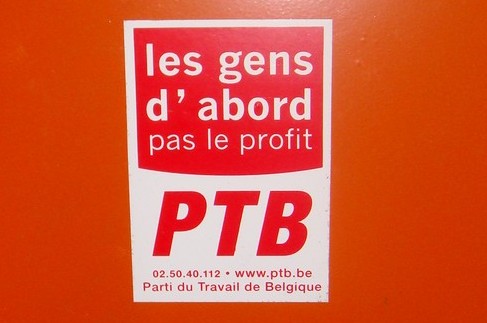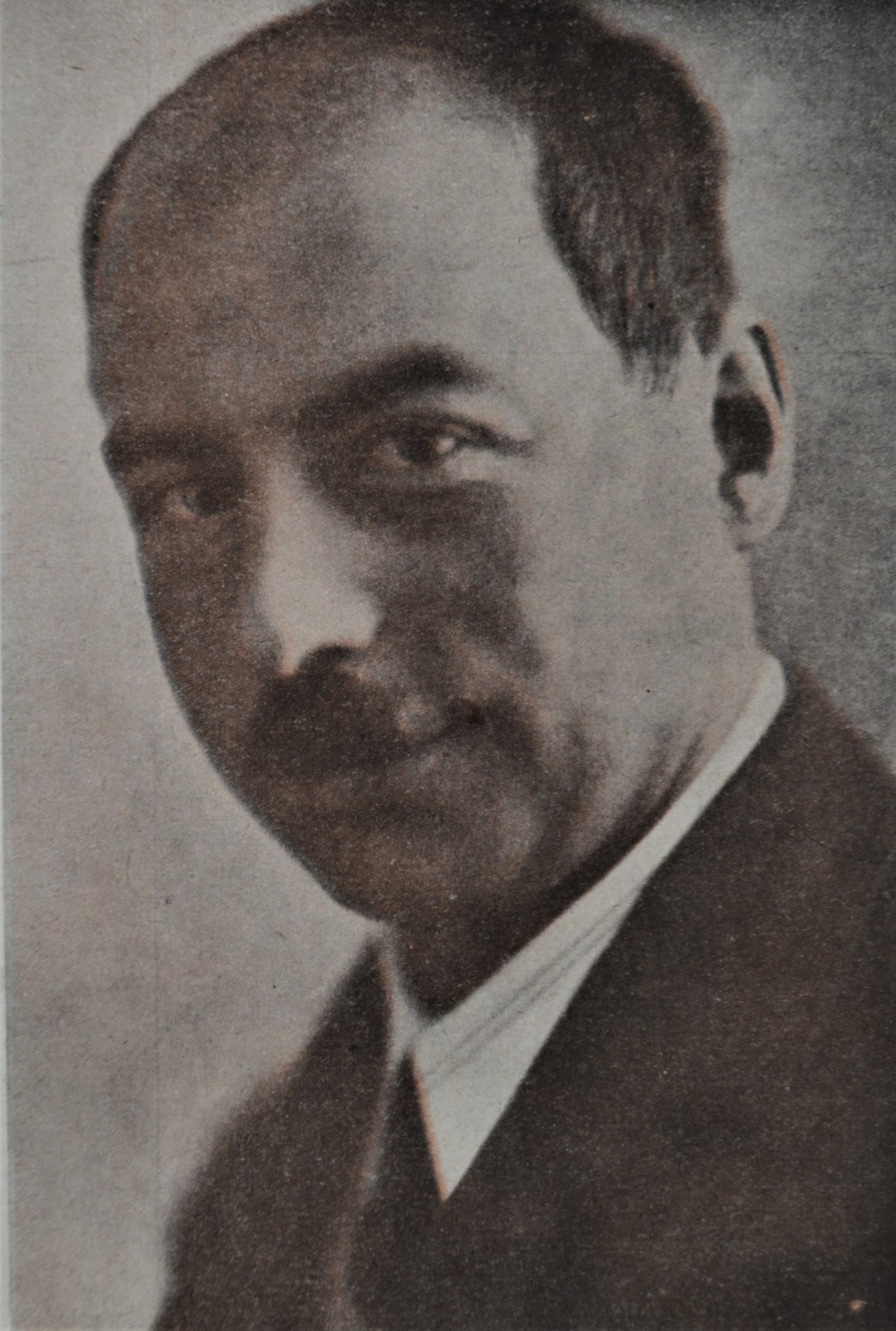|
Ludo Martens
Ludo Martens (12 March 1946 – 5 June 2011) was a Belgian activist and historian who founded and served as the first leader of the Workers' Party of Belgium. He wrote several works on the political history of Central Africa and the Soviet Union. In 1968, Martens founded the group ''Alle macht aan de arbeiders'' (All Power to the Workers), which became the Workers' Party of Belgium in 1979. He served as president of the Workers' Party until 2008. Martens was the last foreigner to meet North Korean president Kim Il-sung before his death on 8 July 1994. According to a press release by the Workers' Party, Martens died on the morning of 5 June 2011 after a long illness. Biography Martens was born in 1946, as the eldest son of a furniture manufacturer. He grew up in Wingene, West Flanders, Belgium. While at school, he showed talent in linguistics and became a newspaper editor. He also had an interest in music and poetry. In 1965, Ludo entered the Louvain University to study me ... [...More Info...] [...Related Items...] OR: [Wikipedia] [Google] [Baidu] |
Workers' Party Of Belgium
The Workers' Party of Belgium (french: Parti du Travail de Belgique, PTB; nl, Partij van de Arbeid van België, PVDA; ) is a Marxism, Marxist and Socialism, socialist political parties in Belgium, political party in Belgium. It is one of the few Belgian parties that is a fully national party, representing both Flanders and Wallonia. Having traditionally been a small party, the PTB-PVDA has gained momentum since the 2010s, continuously scoring better at the polls and elections, particularly in Wallonia and working-class communities in Brussels. History The Workers' Party of Belgium originated in the student movement at the end of the 1960s. Students (organized in the student union ''SVB'' - ''Studenten VakBeweging''), mainly from the Catholic University of Leuven (1834–1968), Catholic University of Leuven, turned towards the working-class movement. They considered the politics of the existing Communist Party of Belgium Marxist revisionism, revisionist, i.e. too much turned to ... [...More Info...] [...Related Items...] OR: [Wikipedia] [Google] [Baidu] |
Democratic Republic Of The Congo
The Democratic Republic of the Congo (french: République démocratique du Congo (RDC), colloquially "La RDC" ), informally Congo-Kinshasa, DR Congo, the DRC, the DROC, or the Congo, and formerly and also colloquially Zaire, is a country in Central Africa. It is bordered to the northwest by the Republic of the Congo, to the north by the Central African Republic, to the northeast by South Sudan, to the east by Uganda, Rwanda, and Burundi, and by Tanzania (across Lake Tanganyika), to the south and southeast by Zambia, to the southwest by Angola, and to the west by the South Atlantic Ocean and the Cabinda exclave of Angola. By area, it is the second-largest country in Africa and the 11th-largest in the world. With a population of around 108 million, the Democratic Republic of the Congo is the most populous officially Francophone country in the world. The national capital and largest city is Kinshasa, which is also the nation's economic center. Centered on the Cong ... [...More Info...] [...Related Items...] OR: [Wikipedia] [Google] [Baidu] |
Khrushchevism
Khrushchevism was a form of Marxism–Leninism which consisted of the theories and policies of Nikita Khrushchev and his administration in the Soviet Union. Mao Zedong recognized "Khrushchevism" as a distinct ideology and initially from a positive perspective, though later the term was used by the Communist Party of China, Chinese Communist Party as a term of derision against the politics of the Soviet Union. Khrushchevism involves the rejection of Stalinism and particularly represents a movement away from Stalinist politics, including advocating a more liberal tolerance of some cultural dissent and deviance, a more welcoming international relations policy and attitude towards foreigners and a repudiation of Stalinist arbitrariness and terror tactics. Khrushchevism was not only a phenomenon in the Soviet Union, as it was initially admired in China and Mao sought to model the Chinese Marxist–Leninist state upon principles developed by Khrushchevism; but disputes with the Soviet Un ... [...More Info...] [...Related Items...] OR: [Wikipedia] [Google] [Baidu] |
Obituary
An obituary ( obit for short) is an article about a recently deceased person. Newspapers often publish obituaries as news articles. Although obituaries tend to focus on positive aspects of the subject's life, this is not always the case. According to Nigel Farndale, the Obituaries Editor of ''The Times'': "Obits should be life affirming rather than gloomy, but they should also be opinionated, leaving the reader with a strong sense of whether the subject lived a good life or bad; whether they were right or wrong in the handling of their public affairs." In local newspapers, an obituary may be published for any local resident upon death. A necrology is a register or list of records of the deaths of people related to a particular organization, group or field, which may only contain the sparsest details, or small obituaries. Historical necrologies can be important sources of information. Two types of paid advertisements are related to obituaries. One, known as a death notice, ... [...More Info...] [...Related Items...] OR: [Wikipedia] [Google] [Baidu] |
Harpal Brar
Harpal Brar (born 5 October 1939) is an Indian communist politician, writer and businessman, based in the United Kingdom. He is the founder and former chairman of the Communist Party of Great Britain (Marxist–Leninist), a role from which he stood down in 2018. Born in Muktsar, Punjab, British India, Brar has lived and worked in Britain since 1962, first as a student, then as a lecturer in law at Harrow College of Higher Education (later merged into the renamed University of Westminster), and later in the textile business. Brar owns buildings in West London which he uses for CPGB-ML party activity, and he part-owns an internet shop called "Madeleine Trehearne and Harpal Brar" which sells shawls. Brar is the editor of a left-wing political newspaper ''Lalkar'', the former journal of the Indian Workers' Association. Brar has written multiple books on subjects such as communism, Indian republicanism, imperialism, anti-Zionism, anti-colonialism, and the British General Strike. He ... [...More Info...] [...Related Items...] OR: [Wikipedia] [Google] [Baidu] |
New World Order (politics)
The term "new world order" refers to a new period of history evidencing dramatic change in world political thought and the balance of power in international relations. Despite varied interpretations of this term, it is primarily associated with the ideological notion of world governance only in the sense of new collective efforts to identify, understand, or address global problems that go beyond the capacity of individual nation-states to solve. The phrase "new world order" or similar language was used in the period toward the end of the First World War in relation to Woodrow Wilson's vision for international peace;A search of the American Presidency Project for the exact phras"new world order"returned no hits for President Woodrow Wilson, but it is the case that Wilson used the phras"new order of the world"in a speech giveSeptember 9, 1919 to the University of Minnesota Armory in Minneapolis and that he also used the phras"new international order"in a speech giveFebruary 11, 1918 ... [...More Info...] [...Related Items...] OR: [Wikipedia] [Google] [Baidu] |
Class Struggle
Class conflict, also referred to as class struggle and class warfare, is the political tension and economic antagonism that exists in society because of socio-economic competition among the social classes or between rich and poor. The forms of class conflict include direct violence such as wars for resources and cheap labor, assassinations or revolution; indirect violence such as deaths from poverty and starvation, illness and unsafe working conditions; and economic coercion such as the threat of unemployment or the withdrawal of investment capital (capital flight); or ideologically, by way of political literature. Additionally, political forms of class warfare include legal and illegal lobbying, and bribery of legislators. The social-class conflict can be direct, as in a dispute between labour and management such as an employer's industrial lockout of their employees in effort to weaken the bargaining power of the corresponding trade union; or indirect such as a workers' sl ... [...More Info...] [...Related Items...] OR: [Wikipedia] [Google] [Baidu] |
Joseph Stalin
Joseph Vissarionovich Stalin (born Ioseb Besarionis dze Jughashvili; – 5 March 1953) was a Georgian revolutionary and Soviet political leader who led the Soviet Union from 1924 until his death in 1953. He held power as General Secretary of the Communist Party of the Soviet Union (1922–1952) and Chairman of the Council of Ministers of the Soviet Union (1941–1953). Initially governing the country as part of a collective leadership, he consolidated power to become a dictator by the 1930s. Ideologically adhering to the Leninist interpretation of Marxism, he formalised these ideas as Marxism–Leninism, while his own policies are called Stalinism. Born to a poor family in Gori in the Russian Empire (now Georgia), Stalin attended the Tbilisi Spiritual Seminary before joining the Marxist Russian Social Democratic Labour Party. He edited the party's newspaper, ''Pravda'', and raised funds for Vladimir Lenin's Bolshevik faction via robberies, kidnappings and protection ... [...More Info...] [...Related Items...] OR: [Wikipedia] [Google] [Baidu] |
Great Purge
The Great Purge or the Great Terror (russian: Большой террор), also known as the Year of '37 (russian: 37-й год, translit=Tridtsat sedmoi god, label=none) and the Yezhovshchina ('period of Nikolay Yezhov, Yezhov'), was General Secretary of the Communist Party of the Soviet Union, Soviet General Secretary Joseph Stalin's campaign to solidify his power over the party and the state; the Purge, purges were also designed to remove the remaining influence of Leon Trotsky as well as other prominent political rivals within the party. It occurred from August 1936 to March 1938. Following the Death and state funeral of Vladimir Lenin, death of Vladimir Lenin in 1924 a power vacuum opened in the Communist Party of the Soviet Union, Communist Party. Various established figures in Lenin's government attempted to succeed him. Joseph Stalin, the party's General Secretary, outmaneuvered political opponents and ultimately gained control of the Communist Party by 1928. Initially ... [...More Info...] [...Related Items...] OR: [Wikipedia] [Google] [Baidu] |
Collectivisation In The Soviet Union
The Soviet Union introduced the collectivization (russian: Коллективизация) of its agricultural sector between 1928 and 1940 during the ascension of Joseph Stalin. It began during and was part of the first five-year plan. The policy aimed to integrate individual landholdings and labour into collectively-controlled and state-controlled farms: ''Kolkhozes'' and ''Sovkhozes'' accordingly. The Soviet leadership confidently expected that the replacement of individual peasant farms by collective ones would immediately increase the food supply for the urban population, the supply of raw materials for the processing industry, and agricultural exports via state-imposed quotas on individuals working on collective farms. Planners regarded collectivization as the solution to the crisis of agricultural distribution (mainly in grain deliveries) that had developed from 1927. This problem became more acute as the Soviet Union pressed ahead with its ambitious industrializati ... [...More Info...] [...Related Items...] OR: [Wikipedia] [Google] [Baidu] |

_composite_obituary_in_the_Hudson_Observer_on_November_22%2C_1918.jpg)




